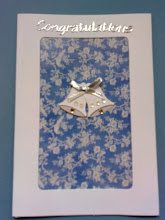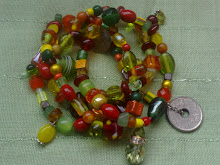The latest edition of InCultureParent is out and includes my column "Islam and Child Discipline: Is Hitting Ever Ok?":
"I believe that, to an extent, we are a product of our own parent’s parenting. The way we respond to the world, our emotional reactions and our temperament, are influenced by our upbringing. I love my mum to bits, but as a young mother she was isolated from her family and frustrated. Having lost her own mother as a toddler, she was raised solely by her stepmother, as her father was not involved in his children’s care. This experience left her angry and quick to violence. Her method of child discipline was generally physical and enacted in fits of anger. Although this may sound terrible, we children were not alone. Most of the South Asian children I knew at school shared similar stories of being whacked with rolling pins or wooden spoons and chased around the house with flip-flops. It was considered the norm and, when compared to friends’ stories, hilariously funny in hindsight.
It became a lot less funny when I had my own children. The urge to quell noise or mischief with a smack or by shouting is almost automatic—a default reaction that requires no thought. In contrast, thinking through how to respond to your child, taking the time to talk to him or her and working through a solution together takes effort and goes against the grain.
I come from a culture where a good child is a quiet and obedient one. But this approach has its drawbacks: I have found that many people my age cannot communicate easily with their elders. When they need to disagree with something, they will suppress their opinions until they explode and then they are considered rude. I will not tolerate rudeness to elders or bad manners in my children, but I have taught them that they don’t need to agree with me and that I am able to change my mind on something if they can reason with me politely. The result is that they are learning how to negotiate to get their way without rudeness (ask and ask and ask again in my middle son’s case). It also means they are spirited, opinionated (my youngest son has now declared “I don’t eat any vegetables”) and very confident—including around adults. It helps to have a mother-in-law that does not have the conventional attitude on these things. Mine believes that mischief is a sign of intelligence and that a quiet child is just sneaky—perhaps that makes her feel better about her six noisy, unruly sons (I call them “Ma Baker and her Boys”)."
You can read the full column here. Please do visit and leave comments (comments make me happy).
Friday, 24 June 2011
InCultureParent July: Islam and Child Discipline
Labels:
Discipline,
Magazine,
Motherhood,
Raising Children,
Writing
Subscribe to:
Post Comments (Atom)































that last comment is hilarious - can't believe mum said that!
ReplyDeleteI swear she said that to me!!
ReplyDeleteAfter all those years of being chased round the house as well.
... I smacked my daughter out of frustration. Her response was to turn and cling to me for comfort. I found it so profound that a child would trust and depend on her mother so much that she would seek her comfort even when she was hurt by her.
ReplyDeleteIt reminded me of something similar yet different: of Allah's Prophet's dua to His Lord:
اللهُمَّ أَعُوذُ بِرِضَاكَ مِنْ سَخَطِكَ، وَبِمُعَافَاتِكَ مِنْ عُقُوبَتِكَ، وَأَعُوذُ بِكَ مِنْكَ لَا أُحْصِي ثَنَاءً عَلَيْكَ أَنْتَ كَمَا أَثْنَيْتَ عَلَى نَفْسِكَ
Allah! I seek refuge in Your pleasure against Your wrath, and in safety provided by You against Your punishment. I seek refuge in You from You. I cannot enumerate Your praises. You are as praiseworthy as You Yourself alone can describe! (Muslim: 486)
So, Little Lady was seeking protection in you against you, in your love against your anger. As if she has nowhere else to go. Perhaps true, yet how touching!
You could teach her to replicate the same sentiments in her prayers and monologues with Allah. We all could replicate this sentiment.
لَلَّهُ أَرْحَمُ بِعِبَادِهِ مِنْ هَذِهِ بِوَلَدِهَا
Allah is far more merciful to His servants than the mother to her child. (Bukhari: 5999)